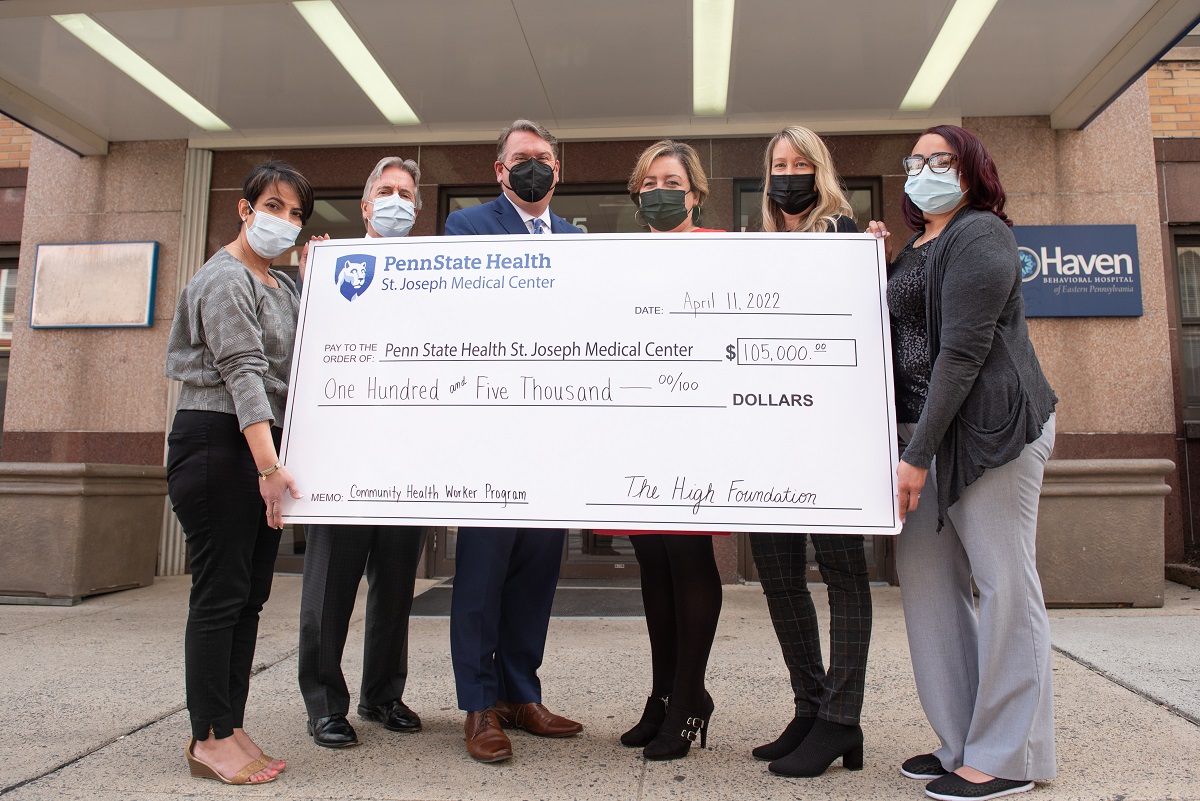Penn State Health St. Joseph Medical Center wins grant to train community health workers

The High Foundation of Lancaster has presented Penn State Health St. Joseph Medical Center with a $105,000 grant to fund training for 100 participants who enroll in its Community Health Worker training program.
Offered in the Langan Allied Health Academy on the Penn State Health Downtown Campus in Reading, the program targets people who want to help improve health outcomes in their communities. Participants learn to help patients keep appointments, take medications and reduce risk by improving their access to care for acute or chronic conditions.
While some community health workers (CHWs) have little formal training in medicine or health care, they use intimate knowledge of their communities and local resources to help their fellow citizens overcome language, cultural and financial barriers to care or help them obtain transportation to appointments.
“Being a community health worker has helped me to realize the need our community has and that patient care is not confined to the walls of a hospital or a doctor’s office visit,” said Diana Rodriguez, a St. Joseph Medical Center CHW for diabetes management. “Patient care goes beyond knowing the difficulties our patients deal with, which also affect their health, and how we can connect them with resources and organizations.”
St. Joseph Medical Center has used CHWs in several key clinical areas and for innovative patient education and group visit care models. They help with programs that deliver vegetables to families and improve the health of people with diabetes and pregnant women. The medical center offers the training program in partnership with Eastcentral Pennsylvania Area Health Education Center and the Literacy Council of Reading-Berks.
A spring class is now forming. Visit the website to learn more.
This grant will advance “A Greater Penn State for 21st Century Excellence,” a focused campaign that seeks to elevate Penn State’s position as a leading public university in a world defined by rapid change and global connections. With the support of alumni and friends, “A Greater Penn State” seeks to fulfill the three key imperatives of a 21st century public university: keeping the doors to higher education open to hardworking students regardless of financial well-being; creating transformative experiences that go beyond the classroom; and impacting the world by serving communities and fueling discovery, innovation and entrepreneurship. To learn more about “A Greater Penn State for 21st Century Excellence,” visit greaterpennstate.psu.edu.
If you're having trouble accessing this content, or would like it in another format, please email Penn State Health Marketing & Communications.
